Conflict, Cuts And Identity Crises: How Film Festivals Are Navigating Choppy Waters

Rarely in recent decades has the festival circuit been as disrupted as it has in the past 12 months. A confluence of local and global issues — from war to inflation, political unrest to societal shifts — have created a perfect storm for many of these vital cultural platforms, leading to funding shortfalls, staff losses, major PR headaches and in some cases cancellation. Amid shifts in consumer and industry behavior, there are also broader existential questions being asked about the role and potency of festivals.
Since last year’s Cannes, we’ve seen flashpoints or upheaval at Sundance, Berlin, Hot Docs, Thessaloniki, IDFA, El Gouna, Cairo, Busan, Odessa and others. Questions have been hanging over the likes of Venice and Toronto but both have made positive announcements in recent weeks: the former by re-upping Alberto Barbera, the latter by confirming a cash injection to bolster its market.
More from Deadline
During this year’s turbulent Berlin Film Festival, Martin Scorsese voiced the concerns of many in the independent film sector: “Film Festivals are essential, because they offer audiences a way of looking at movies that has nothing to do with box office or mass popularity and everything to do with the cinema as an art form. I find that too many of them have been put in a difficult position, where they have to justify their existences in one way or another.”
Below, we explore how and why some film international and North American festivals have found themselves in the cross-hairs.
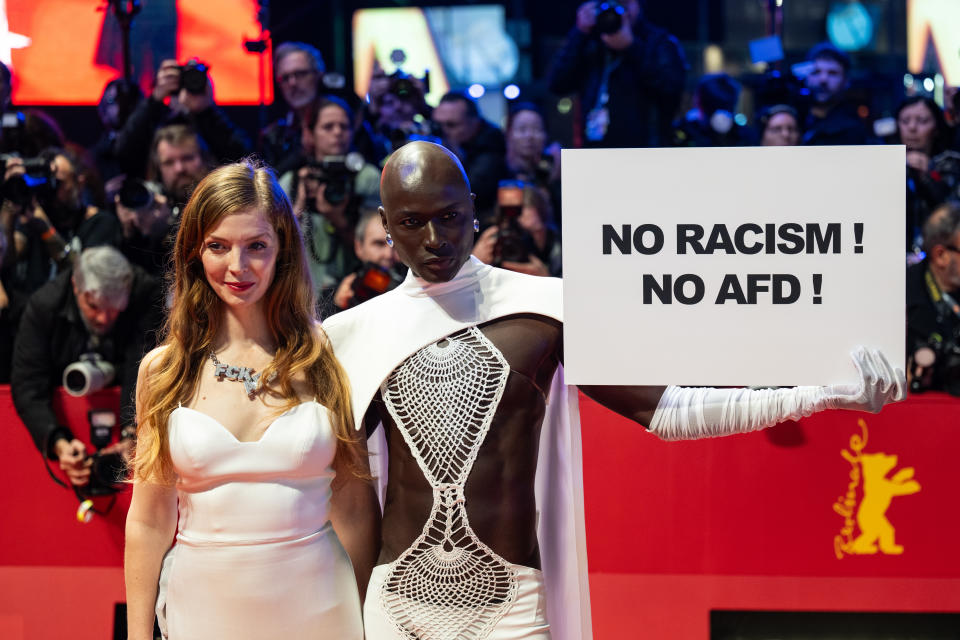
Andreas Wiseman on Europe
This year’s Berlin Film Festival encapsulated a number of the challenges facing the sector. Amid funding difficulties, the state-backed event was bookended by damaging political headaches, first when activist staff and some industry were irked by organizers inviting the democratically elected far-right party AfD to the opening ceremony, and then by accusations of antisemitism from German politicians in response to speeches at the closing ceremony. Meanwhile, the festival has been facing a deeper identity crisis as it seeks to regain its footing as a must-attend A-list showcase. Festival regulars are hopeful that incoming artistic director Tricia Tuttle can breathe new life into the event. Positive changes are already afoot.
Longtime Berlin Film Festival programmer Lorenzo Esposito admits that “this year was more difficult than usual.” He also touched on the changing nature of programming amid a growing number of social justice campaigns and culture wars that are amplified by social media: “I’ve been a programmer for 20 years and things are different today. There are many social issues and contexts that impact the way you approach a film.”
Clare Stewart, managing director of International Film Festival Rotterdam, noted that the effects of Covid are still being felt by the sector: “From an economic and audience point of view, we’re still in recovery mode from the major impact of the pandemic. Our 2023 edition still benefitted from Covid recovery resource, and this was the same for some other festivals, so in 2024 we had the challenge of attracting sponsors back, in addition to inflation. We met those challenges successfully by rescaling and finding new sponsors, but that will be a challenge again next year.”
The IFFR was one of only a few festivals not dented at some stage by the Israel-Palestine conflict. The Cairo and Carthage film festivals were canceled entirely as a result of the war, while El Gouna was delayed. Many other events have been caught in PR storms over what has or hasn’t been said by festival brass or attendees.
“Festivals have become important platforms for expressing opinions and for people to use them as platforms,” acknowledges longtime Karlovy Vary artistic director Karel Och. “You see filmmakers and producers withdrawing films from certain events because they don’t think the festival is saying the right things about a global event or subject. I find it short-sighted to force a festival to take sides like that. Festivals are meant to be spaces for different voices and opinions. Without conversation we won’t go anywhere.”

Mike Goodridge, co-producer of Triangle of Sadness and formerly CEO of international sales firm Protagonist Pictures and head of the Macao Film Festival, sees the major challenge facing festivals today as one of identity amid a shifting distribution landscape.
“For me as a producer, the big challenge when it comes to festivals is about consumer habits and distribution for festival films,” he explains. “It is becoming harder to generate publicity, reviews and sales at festivals beyond a few select titles. How many international arthouse films are finding homes in the UK, for example? Very few.”
Och acknowledges that challenge and says “to an extent, film festivals are replacing arthouse distribution due to the parlous state of releasing independent movies in some territories.” That’s little consolation for filmmakers and distributors, however.
With the international sales model evolving over time, markets are becoming less fundamental for setting up projects. For a festival like Berlin, which benefits from a strong adjoining European Film Market, this is also problematic.
Goodridge continues: “I think we’re now experiencing the full impact of streamer disruption and it’s harder to quantify the value of festivals. On one hand, we want to be at festivals, we want those reviews, and that platform, but it feels harder and harder to find those slots. Berlin is in flux, and Venice could be in flux with the country’s new government and changes at the Biennale.”
The recent news that Venice chief Barbera will be renewed for another two years has been widely welcomed after his successful efforts to re-establish the Lido as a major awards platform. Many festival-watchers are assuming the highly anticipated Joker sequel will choose Venice as its launchpad, for example. The festival has enjoyed a particularly fruitful collaboration with Netflix — which remains absent from Cannes — and many are wondering how that mutually beneficial partnership may evolve in light of changes at the streamer. Netflix’s film slate for later this year certainly seems lighter on Oscar hopefuls than in previous years.
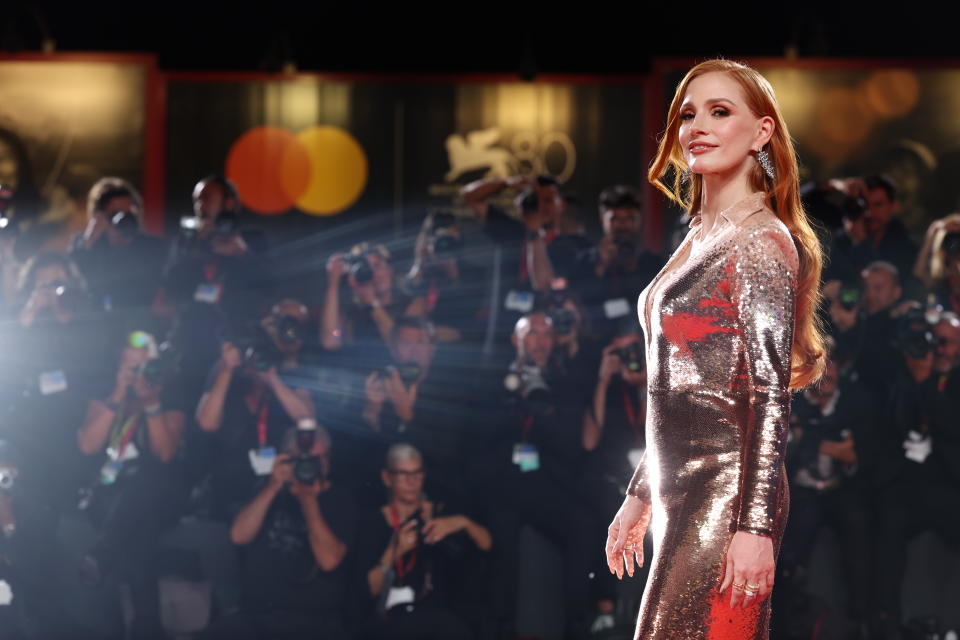
For many we spoke with, the gap between Cannes — and in second position Venice — to other A-list festivals is only increasing.
“There is more and more focus on Cannes,” says Goodridge. “Many of the ‘tentpole arthouse films’ are going to Cannes.”
Cannes is coming off a bumper 2023 edition with awards darlings such as Anatomy of a Fall, The Zone of Interest and Killers of the Flower Moon all starting out on the Croisette. Cannes chief Thierry Frémaux said last month that the event received more submissions than ever before, and the 2024 lineup is once again an enviable mix of studio titles, A-list arthouse filmmakers and intriguing newcomers. The early signs are promising in turns of distribution, too, with a number of decent domestic and international deals for arthouse-crossover movies.
Goodridge posits: “Cannes has always been clever because it understands the value of American cinema at a festival. It’s no coincidence that when you play Tom Cruise and Wes Anderson in proximity to arthouse films the latter get attention too because the media is in town. Venice also understands that.”
Longtime independent film PR and rep Charles McDonald agrees: “Cannes is where everyone wants to go. That can be a problem for other festivals. Cannes benefits because there is such a concentration of media there.”
That said, even Cannes has taken its lumps this year. The festival is dealing with a series of protests from festival workers who are unhappy about their employment contracts. Meanwhile, leading into the event, speculation was rife about a potentially damaging MeToo exposé involving filmmakers with projects at the festival. With France experiencing a new wave of MeToo allegations, Cannes was almost dragged into the fray. Ultimately, the exposé didn’t materialize, and this year’s Cannes has passed off without major incident so far.
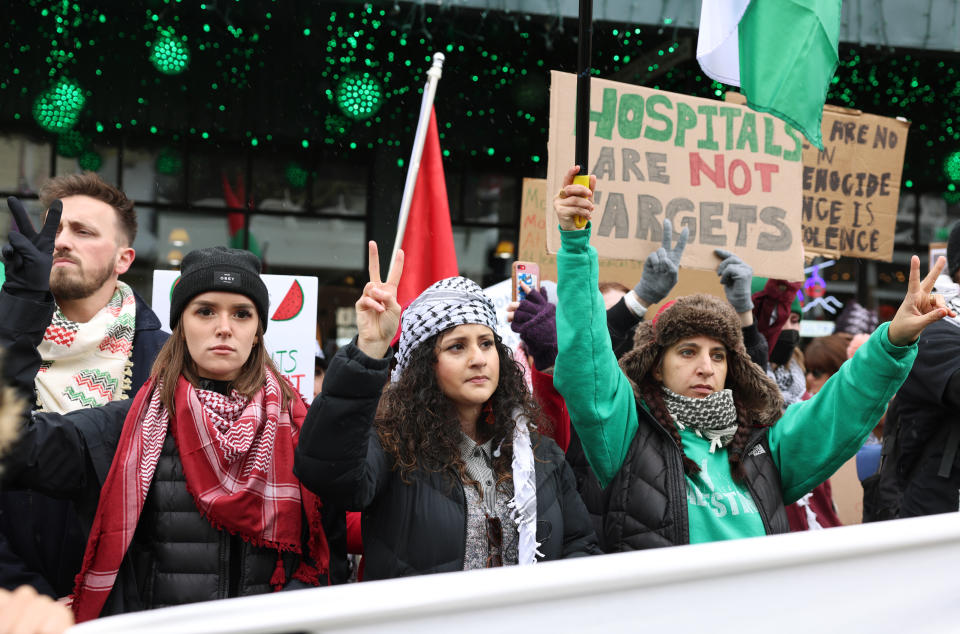
Matt Carey on North America
Hot Docs, the prestigious all-documentary festival in Toronto, just completed its 31st edition. But whether there will be a 32nd remains very much in doubt.
The festival, already coping with a staff revolt – 10 programmers resigned weeks before the event got underway, citing a toxic work environment – said it needed an emergency cash infusion of CAN$2 million to stay afloat. But when the federal budget was announced, Hot Docs got nothing.
The snub put “the future of the organization in jeopardy,” Hot Docs wrote, adding with a snarl, “The federal government has picked winners and losers in Canada’s cultural landscape.”
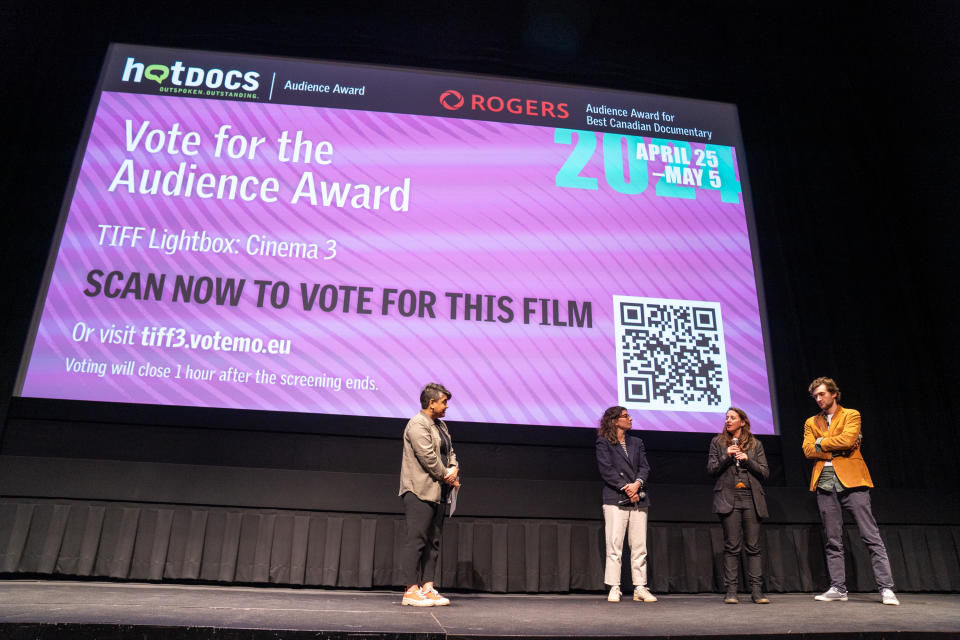
One of the winners was the Toronto Film Festival – itself facing major financial issues. It got a promise of CAN$23M over three years, earmarked to launch “a new official content market at the 2026 Toronto International Film Festival,” TIFF declared. “Envisioned as the North American hub for buying and selling screen-based projects, intellectual property, and immersive and innovative content across all platforms, the market will elevate Canadian and international talent while driving global distribution and sales.”
TIFF has faced urgency to reinvent itself after losing its longtime sponsor, Bell Canada, a deal that had brought in millions per year. In December, it laid off 12 fulltime staffers, announcing a “strategic review” of a business model hampered by the pandemic and aggravated by last year’s entertainment industry strikes.
“There is, overall, a fair amount of instability among festivals in general,” says Ken Jacobson, executive director of the Hot Springs Documentary Film Festival in Arkansas and a former senior programmer at the American Film Institute. Another senior industry executive, who requested anonymity to speak freely, says “The situation [at North American festivals] is quite serious on a financial level. It is really concerning.”

The nonprofit Sundance Institute, which mounts year-round artist labs as well as the annual Sundance Film Festival in Park City, Utah, laid off 6 percent of its staff last summer. Partly to reduce costs, the festival trimmed the number of films in competition this year by about 20 percent. Both Sundance and the Telluride Film Festival benefit from the allure of their exclusive mountain settings, but the high price of travel and lodging have made it increasingly difficult for industry to attend.
“Telluride is really under pressure for the cost to house their own programmers and just to house the people who work for the festival,” says a senior sales agent and veteran Telluride attendee. “We feel that, just attending the festival alone. It is so high and it’s getting higher.”
Sundance, faced with this sustainability question and constricted finances, recently invited other cities to bid on hosting the festival beyond 2026. Deadline’s Dominic Patten reports the bidders include San Francisco, Minneapolis, Santa Fe, Atlanta and Chicago. “A couple of locations in Upstate New York,” he writes, “as well as Savannah, GA are in play too.”
The deadline for a decision is October 1. It will have to be made in the absence of Sundance Institute CEO Joana Vicente, who in March announced her surprise resignation after two and a half years on the job. The Institute praised Vicente as “a tremendous asset to the Institute and our global community of artists,” but its statement gave no reason for her departure beyond a quote from Vicente who said she had “made the decision to begin a new chapter.”
Some festivals, including Sundance, adopted a hybrid model because of the pandemic, coupling in-person with an online viewing option. That approach can boost viewership overall but lowers on-site attendance, reducing vibrancy and economic impact.
“For many people faced with the decision of going to Park City, which is expensive and logistically challenging for some versus accessing the films online, that becomes a real choice,” says Jacobson, the Hot Springs festival ED. “If you can watch the same world premiere maybe a week later from your home and save the cost of travel and lodging, it’s tempting to do that.”
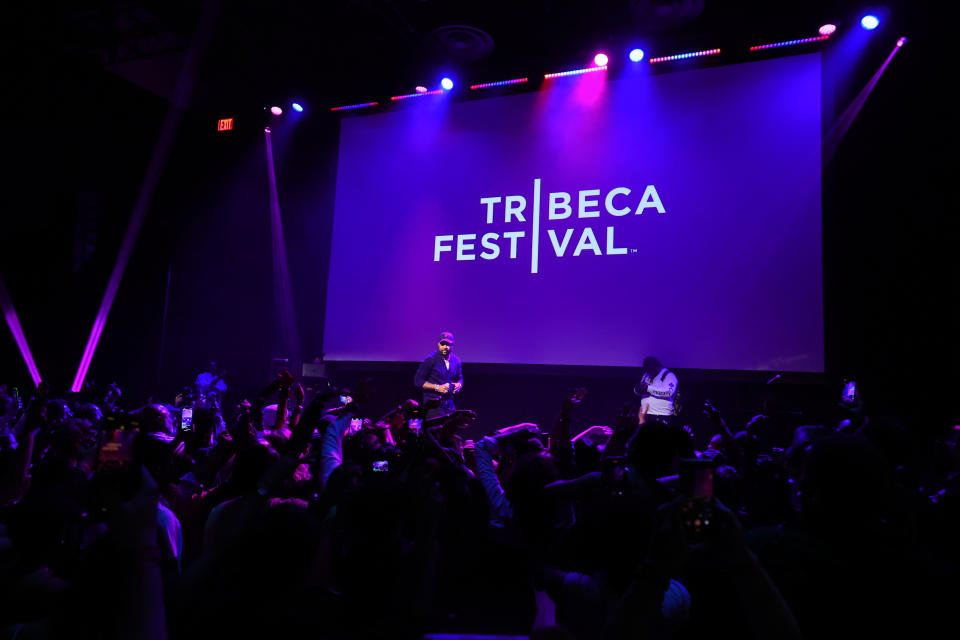
The challenge for the Tribeca Festival, a division of for-profit Tribeca Enterprises, has been to maintain relevance after shifting from April to early June during the pandemic. Festival leaders say they like the June slot because the weather in New York is better, boosting attendance, and they say media impressions for the 2023 event hit record levels. But one veteran New York-based sales agent insists it’s been hard going to drum up attention for projects launching at Tribeca.
After the move to June, “You saw press coverage fall off a cliff,” the sales agent maintains. “For the purposes of the industry side of things, it is a terrible time to premiere [a film]… Nobody wants this film festival in June. Everyone wants April.”
It’s not the only festival that should consider a date shift. One independent film distributor says TIFF should acknowledge that media are devoting more attention to Venice and Telluride than the Canadian event. He says TIFF would do itself a favor by moving a week later in September.
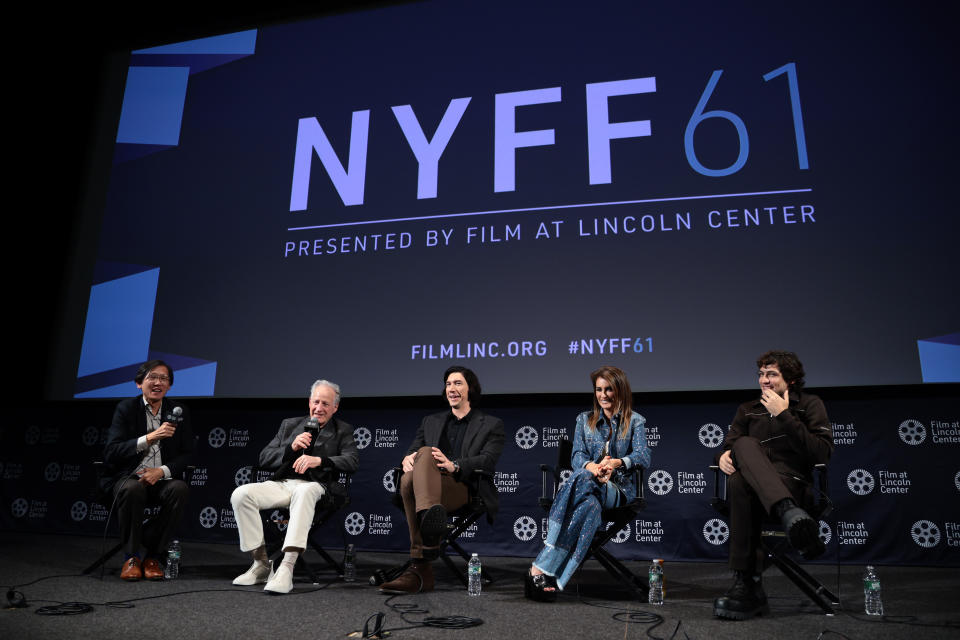
Despite the array of challenges, it isn’t all doom and gloom in film festival world. Film at Lincoln Center is cultivating an audience with year-round programming and its signature event, the New York Film Festival, is thriving. “In terms of ticket sales, it’s the best we’ve ever done,” notes FLC president Lesli Klainberg of 2023’s festival. “Virtually every single screening had a line outside of Alice Tully Hall.”
NYFF doesn’t give out awards and doesn’t emphasize premieres, countering what might be called the streamer effect, whereby some festivals give the impression they’re prioritizing whatever Netflix, Apple TV+ or Prime Video want showcased. Audiences know they can eventually see those offerings on TV.
Klainberg says Film at Lincoln Center also runs lean. “We have like a $16-and-a-half million budget, compared to Sundance or other organizations,” she says. “We do a lot with a little.”
The Sundance Institute’s expenses for fiscal year 2023 ran $49.3 million, according to just-released federal tax filings. Revenues were $45M, resulting in a budget deficit of $4.3M.
“It is expensive to put on a circus and take it all down,” notes Anne Lai, executive director of SFFilm, the organization responsible for the San Francisco International Film Festival as well as the Doc Stories festival. “Revenue streams haven’t turned. 2023 was also the first year that there was no federal or state Covid aid. So, the real cliff happened in ’23.”
Outfest, the LGBTQIA+ film festival in Los Angeles, laid off its entire staff in 2023; Michael Moore’s Traverse City Film Festival shut down in 2023 after nearly 20 years in operation; the Human Rights Film Festival is closing down; and the Montreal-based Just For Laughs festival canceled 2024’s event and filed for bankruptcy. But, in the “glimmer of hope” department, several new festivals have started up. This Is Not a Fiction, put on by the American Cinematheque in Los Angeles, just held its inaugural event. The inaugural Round Top Film Festival launches in Texas this November. The long-running Margaret Mead Film Festival in New York, shuttered by the pandemic, just made its return. And there’s also hope in the example of Full Frame. The documentary festival in Durham, NC came back this April for the first time since the pandemic.
Jacobson summed up the feelings about that festival’s return. “It’s great to see Full Frame back in action,” he said. “They were dearly missed.”
Best of Deadline
Hollywood & Media Deaths In 2024: Photo Gallery & Obituaries
2024-25 Awards Season Calendar - Dates For Oscars, Tonys, Guilds, BAFTAs, Spirits & More
TV Cancellations Photo Gallery: Series Ending In 2024 & Beyond
Sign up for Deadline's Newsletter. For the latest news, follow us on Facebook, Twitter, and Instagram.

 Yahoo Movies
Yahoo Movies 
